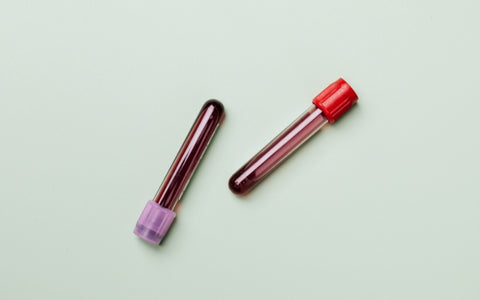Stress is one sneaky culprit that impacts almost every part of our health. When it lingers unchecked, our bodies feel its effects. That’s where the concept of allostatic load comes in. It's essentially the cumulative wear and tear on our bodies and minds caused by chronic stress.
While our systems are designed to handle short bursts of tension, ongoing challenges like major life shifts, everyday pressures, and even global crises can push us into allostatic overload.
This overload doesn’t just make us feel tired, it can lead to serious health problems.
So, what happens when your body's stress response - your sympathetic nervous system, gets stuck in the "on" position for weeks, months, or even years?
That perpetual fight-or-flight mode has consequences far beyond feeling frazzled.
Over time, continuous stress impacts everything from your cardiovascular system to your mood.
Your body works hard to manage stressors, flooding your system with hormones like adrenaline and cortisol. But when those hormones stick around for too long, they wreak havoc on your nervous system, immune function, digestion, and more. Think elevated blood pressure, muscle pain, disrupted sleep, increased inflammation, you get the idea.
If your resilience (the ability to bounce back from hard situations) is wearing thin, your body might be sending out an SOS signal.
Pay attention to these common signs:
-
Low energy: Chronic stress can leave you feeling drained, and no amount of sleep or downtime seems to help.
-
Digestive troubles: Bloating, constipation, or other gastrointestinal discomforts often indicate stress affecting your gut, which plays a major role in emotional and physical health.
-
Tense muscles: Stress that sticks around leaves your body on high alert, leading to headaches, jaw pain, or neck and back tension.
-
Trouble sleeping: If you’ve been tossing and turning, stress might be to blame for keeping your mind racing all night long.
-
Mood swings: Feeling unusually irritable, anxious, or emotionally off-balance? Stress may be impacting your mental health more than you realize.
Reducing allostatic load is all about building your resilience and helping your body find its way back to balance.
Here’s how you can ease the stress burden
-
Mindful moments: Practices like meditation, deep breathing, or yoga can activate your parasympathetic nervous system, which helps your body relax and recover. Even taking five minutes for yourself each day can make a difference.
-
Move your body: Exercise isn’t just great for your health, it’s a proven stress-buster. A daily walk or light stretching session can improve how your body copes with pressure.
-
Prioritise sleep: Stress and poor sleep go hand in hand, so create a bedtime routine to set the stage for restful nights. Think relaxing teas, unplugging from devices, and cutting down on evening caffeine.
-
Coffee Enemas: Did you know they also activate your parasympathetic nervous system? Coffee enemas can aid in reducing stress by promoting relaxation and detoxification.They support the liver’s natural ability to process toxins and hormones while boosting glutathione production - a powerful antioxidant which also enhances the body’s resilience to stress.
-
Eat for resilience: What you put on your plate matters. Focus on whole foods like fruits, veggies, whole grains, and probiotic-rich options to support both your gut and mood.
-
Build connections: Never underestimate the power of a good chat. Spending time with supportive friends and family is a buffer for stress that keeps you grounded.
-
Herbs - Herbs have been used for centuries to help calm the mind and relax the body. Herbs like tulsi, chamomile, lavender and passionflower all have calming properties. Drinking them as a tea or consuming them through Ayurvedic medicine is a great way to experience the benefits. Or for a deeper infusion, you can add them to your herbal enema!
Stress might be a part of life, but it doesn’t have to dominate it. By taking small steps to support your wellbeing, you’re giving your body the chance to reset and recharge.
Be kind to yourself, you deserve it.





